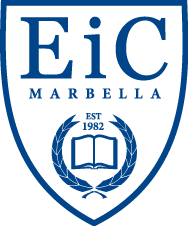

Students will be able to take part in a wide range of extracurricular activities which are scheduled both before and after school. Our Key Stage 3 Star Awards, which run from Year 7 to Year 9, give the students the opportunity to challenge themselves by completing a project beyond the curriculum. These learner-led projects allow students to follow their passions and learn more about topics they love. The Star Award culminates in a wonderful annual exhibition where students showcase their learning journey.
Throughout the three years, students will be part of a House. Separate from form classes, the four houses help establish a sense of community and enable students to work with children from other year groups. A team of House Captains work together to organise and run exciting events for Years 7 to 9. These often involve raising funds for local organisations, and allow students to develop their collaboration skills.

Within Key Stage 3 English, there is a balanced focus on the two strands of English: Language and Literature. The curriculum is designed to build upon the knowledge students have acquired in Primary and to introduce them to skills they will need for IGCSE and beyond. All students are assessed on two sets of skills, Reading and Writing, periodically throughout the year.
In lessons, students are exposed to a range of texts, from short stories written in the early 20th century such as ‘The Monkey’s Paw’, to the much more recent play, ‘Harry Potter and the Cursed Child’. There is also provision in the curriculum for students to engage with classical mythology. Students are encouraged to engage and analyse the texts with their own ideas and interpretations. Collaborative working between both teachers and students, and students’ peer groups is a focal point of our lessons in Key Stage 3. Class and group discussions where personal views can be expressed, enhancing Speaking and Listening skills, alongside paired and individual activities, are integral to English.
There will be several opportunities for students to be original and creative with language when writing in both fiction (stories and poetry) and non-fiction (newspaper articles and travel brochures) contexts. Optional internal and external writing competitions are run throughout the year for students to take part in, to show off what they are capable of.
Our ethos as a department is to hone a passion for reading within children. We know that many students love to read on a regular basis but we also understand that some students may not have found the right book yet; we urge them to keep looking and will assist them on their journey.
English offers students the ability to develop and craft life-long skills that will assist them in whichever direction, both academic and career-wise, that they wish to take in their future.
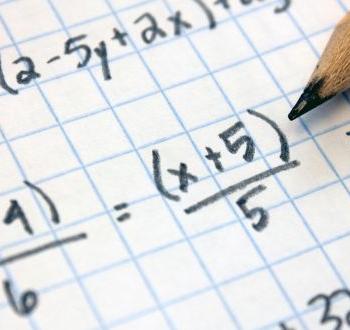
Mathematics lies at the intersection of the arts, humanities and sciences. It can not, and should not, be viewed as a precise, authoritarian and prescriptive set of processes. Teachers are, and students are made to be, aware that the need for creative thinking, clear analysis and well presented explanations are as important in Mathematics as they are in any essay. Students at E.I.C. do not learn Mathematics as a closed book of techniques, a set of methods to be used in one scenario alone. Rather, they gain an appreciation for the history of the subject, the lateral thinking that has led to its progress, and an understanding of the wider application of what they are learning.
We believe they should get the chance to appreciate the beauty of the subject, to feel the elegant simplicity of a particular solution, and to experience the satisfaction and enjoyment gained from solving difficult problems. The core themes here are of perseverance, of challenging yourself and learning from mistakes; key skills that will benefit all students in later life, regardless of the academic path they choose to follow.
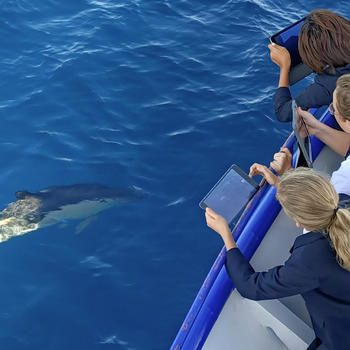
There is a strong practical emphasis in Science at Key Stage 3 and we encourage our students to base conclusions on experimental observations whenever possible. Science is, in addition to being a body of knowledge, an attempt to answer questions in a logical and systematic way. The skills that develop from applying a scientific rationale not only underpin the work done at IGCSE and beyond but are helpful in their own right in enabling students to make sense of an increasingly complex world and the role they play in it.
In Year 9 our students are taught the 3 Science disciplines separately and, whenever possible, by subject specialists. During this year they cover the first part of the IGCSE programme in each Science subject. They then have the option to continue one of more Science subject to IGCSE level from Year 10 onwards. In Years 7 and 8 Science is taught by topics, each one covering an area of Physics, Biology or Chemistry. They undertake many experiments and become familiar with experimental procedures and the use of different types of apparatus. We try, as far as possible, to ensure the students are busy, engaged, learning and having fun!
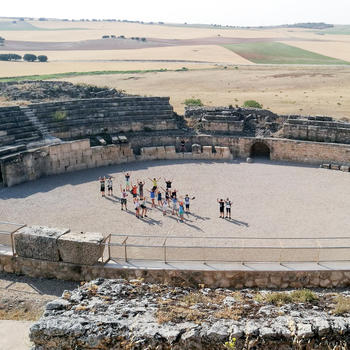
In Key Stage 3 all pupils learn Spanish and they also study French or German. Pupils make progress through the use of interactive activities, and dynamic lessons guarantee that there is a good balance between work and play. Technology is used as a tool to support learning, so games, collaborative work, surveys and creative tasks are built into lessons to make them more fun and productive.
By the end of Key Stage 3 pupils will have built a sound foundation to help them prepare for the IGCSE examination, and they will have received a good insight into the cultures of the languages they learn, in particular thanks to the five-day residential trip they attend at the end of Years 7, 8 and 9.
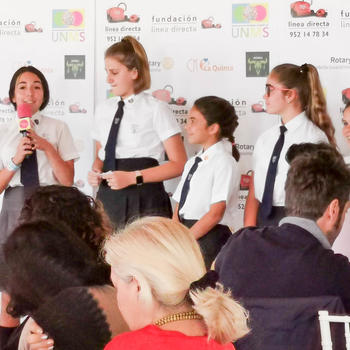
The Humanities Department at Key Stage 3 consists of Geography and History. These subjects can be studied right through to A level and can also be studied alongside other Humanities subjects offered at Key Stage 4 and Key Stage 5 including Economics, Business Studies and Politics. The range of topics studied in Geography and History at Key Stage 3 is broad and gives students the opportunity to develop their understanding of the world around them at both a local and international level.
The students will also develop a broad range of skills, these include analytical, debating, public speaking and the ability to research effectively. Field Trips are also an important part of the department’s ethos providing students with the opportunity to consolidate and inspire their learning beyond the classroom. Projects and inquiry based learning are set throughout the year groups.
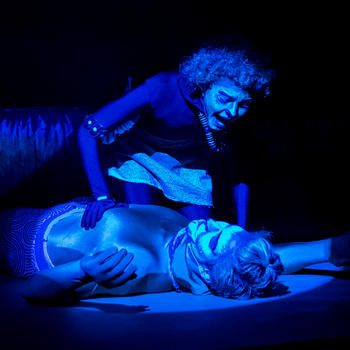
DRAMA - In KS3 students explore a variety of drama skills and performance techniques required to facilitate a good portrayal of a character including improvisation, characterisation, conveying emotions and maintaining focus. Students also develop their confidence and presentation skills as they learn how to devise and create their own performances through a range of theme based schemes of work. As they progress through KS3, as well as an introduction to the work and methodologies of theatre practitioners such as Stanislavski, Brecht and Artaud, they also begin to carry out more independent learning in the development of their pieces and are more in control of direction and rehearsal.
 MUSIC - In KS3 Music, students gain knowledge and experience of a wide variety of musical styles from different times, people and places. Emphasis is given to the key skills of listening, performing and composing with the students having the opportunity to become familiar with a wide range of musical instruments. As they progress through KS3 they will develop the ability to improvise and compose music as well as performing as an ensemble and a soloist. They will also learn the basics of music theory, developing their ability to describe, read and write music.
MUSIC - In KS3 Music, students gain knowledge and experience of a wide variety of musical styles from different times, people and places. Emphasis is given to the key skills of listening, performing and composing with the students having the opportunity to become familiar with a wide range of musical instruments. As they progress through KS3 they will develop the ability to improvise and compose music as well as performing as an ensemble and a soloist. They will also learn the basics of music theory, developing their ability to describe, read and write music.
 ART - In Key Stage 3, pupils learn to manipulate the formal elements of Art so that solid foundations of technical expertise are established on which to build conceptual awareness in later years. Through key exercises and projects and with close links to artists of relevance to enhance learning, students will investigate colour, tone, texture, shape, line and form, exploring important techniques and processes pertaining to effective execution of each. Proposed themes will be developed in Year 9, reflecting the GCSE course structure. The pursuit of independent study is crucial and students will learn to fuse visual elements and refine work towards quality, innovative and coherent outcomes.
ART - In Key Stage 3, pupils learn to manipulate the formal elements of Art so that solid foundations of technical expertise are established on which to build conceptual awareness in later years. Through key exercises and projects and with close links to artists of relevance to enhance learning, students will investigate colour, tone, texture, shape, line and form, exploring important techniques and processes pertaining to effective execution of each. Proposed themes will be developed in Year 9, reflecting the GCSE course structure. The pursuit of independent study is crucial and students will learn to fuse visual elements and refine work towards quality, innovative and coherent outcomes.
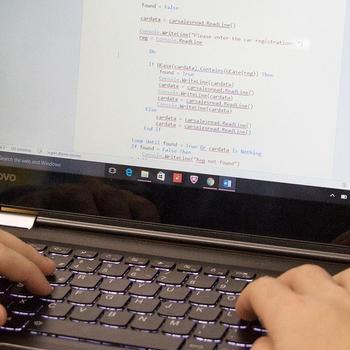
Following the progression from Primary Computing, students in Key Stage 3 will carry on learning about Computer Science (CS). CS uses theory and practical to help create and build usable applications, such as video games, apps and computer programs. CS focuses more on the theoretical and mathematical aspects of computing, compared to ICT.
Some of the topics that will be studied include:
Students will have the opportunity to create apps for touchscreens, code using real complex programming languages (like Python), create a website and more.
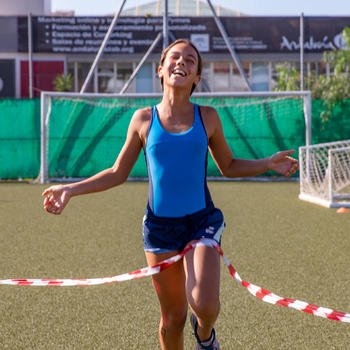
Throughout their time in Years 7, 8 & 9, students in KS3 will complete activities with the aim of giving the individual a broad range of motor skills thereby developing their technical, tactical and teamwork competencies. Key sports include; Swimming, Football, Climbing, Cross Country, Athletics, Rugby and Basketball. All activities are taught with the aim of enabling students to acquire, develop, apply and refine new actions and movements, being able to select the appropriate skill in competitive and increasingly demanding situations. Students will begin to discern how, when and why to apply particular tactics to outwit opponents. Sporting actions will be analysed in their pre and post execution phases, allowing performers to gain a deeper insight into the nuances of their skilled movements. Students will commence the IGCSE course for Physical Education during the last term of Year 9.

We recognize the importance of choosing the right school for your family and we are here to help. Please take the time to read through the Admissions pages to familiarise yourself with the admissions process, but don't hesitate to contact us if you have questions.
When you are ready please visit the Making an Enquiry page to begin the process of joining us.